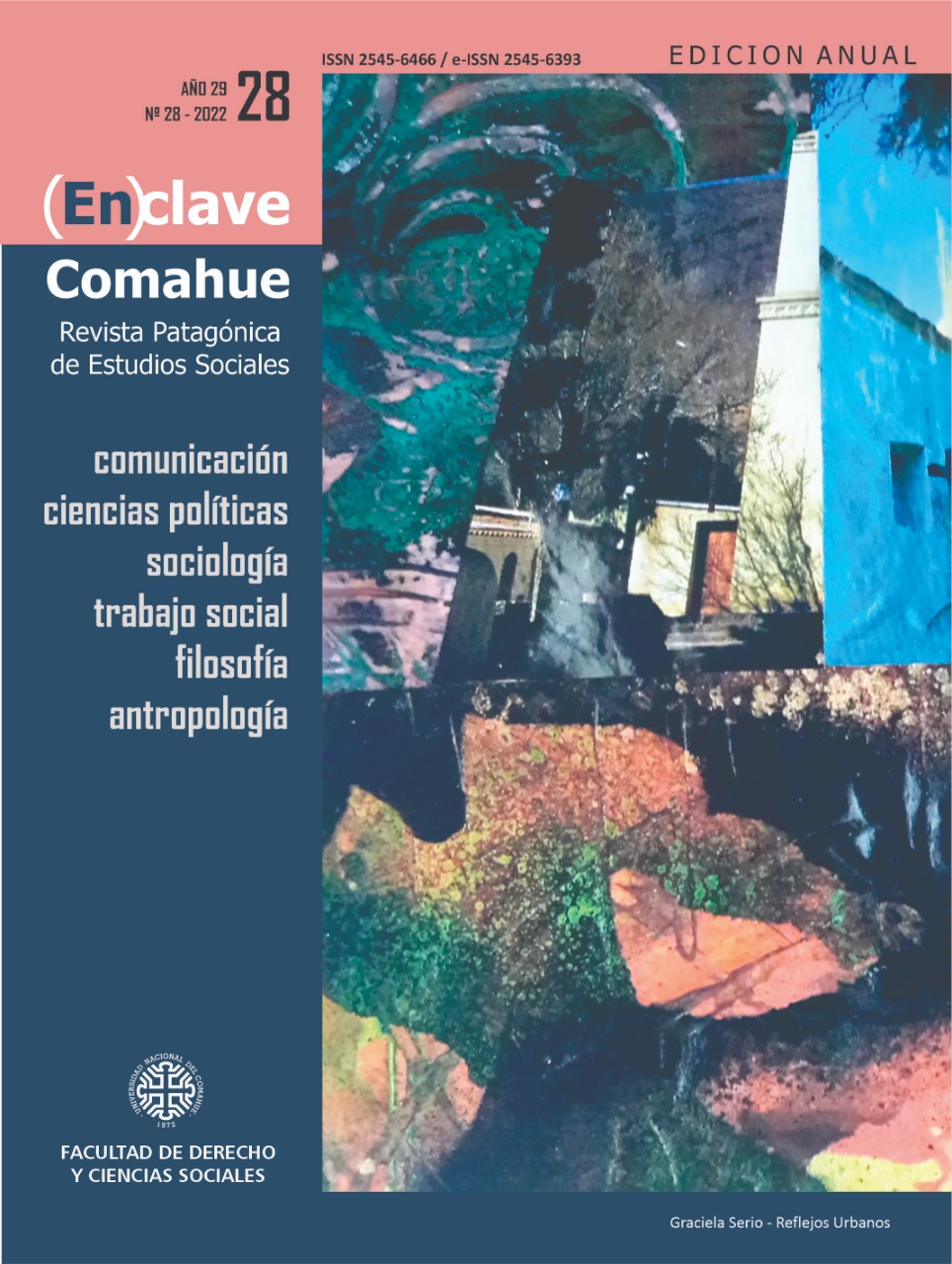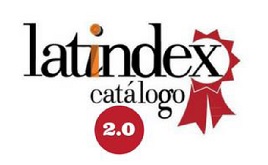Neuquén capital: the metropolis viewed by its inhabitants and users
Abstract
The study of local governments in Argentina is recent. The transformation of the tasks that the municipality must assume and the close relationship with the neighbors/electors increases its visibility on the scene and in the political dispute.
Our line of research focuses on the local State of the Neuquén capital (period 1999-2019), which is characterized by the continuity of a line of government, from party politics as opposed to the provincial government and a parliamentary sphere ─Deliberative Council─ in which the ruling party never had its own majority. During this period, a city project, a government plan and a management style are consolidated. Thus, the city of Neuquén gradually became the metropolis of the Confluence micro-region. This happens in parallel to the conurbation processes that involve cities from two provinces and the explicit recognition of their inhabitants.
This article analyzes the results obtained in an opinion poll carried out among inhabitants and users of the city of Neuquén, which ─as the head of the metropolitan area─ must deploy public policies, together with other levels of the State, to respond to the growing demands in terms of infrastructure and services to the population of the capital city and its area of influence.
Downloads
Downloads
Published
How to Cite
Issue
Section
License
Copyright (c) 2022 María Elizabeth Vaccarisi, Emilia Daniela Campos

This work is licensed under a Creative Commons Attribution-NonCommercial-ShareAlike 4.0 International License.
Los autores de los artículos publicados conservan los derechos de autor y garantizan a la revista el derecho a ser la primera publicación. Los autores podrán adoptar otros acuerdos de licencia no exclusiva de distribución de la versión de la obra publicada (p. ej.: depositarla en un repositorio institucional o en sus sitios personales) siempre que se indique la publicación inicial en esta revista.
Los artículos se publican bajo la licencia de Creative Commons Reconocimiento-NoComercial-CompartirIgual 4.0 Internacional, mediante la cual se permite copiar, reproducir, distribuir, comunicar públicamente la obra y generar obras derivadas, siempre y cuando se cite y reconozca al autor original. No se permite utilizar la obra ni sus posibles obras derivadas con fines comerciales.
ACLARACIÓN: En números anteriores al año 2017 se utilizó la licencia Creative Commons BY-NC-ND para la publicación de los artículos.







